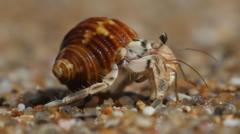Four men, including two Belgian teenagers, pleaded guilty in a Kenyan court to smuggling thousands of live queen ants, marking a troubling trend in wildlife trafficking. The authorities indicate these ants were destined for markets in Europe and Asia, emphasizing concerns over biopiracy and the illegal trade of lesser-known species.
Four Arrested for Attempting to Smuggle Thousands of Queen Ants from Kenya

Four Arrested for Attempting to Smuggle Thousands of Queen Ants from Kenya
Two Belgian teenagers and two other men face charges in Kenya for allegedly trafficking rare queen ants intended for exotic pet markets.
Four men, including two Belgian teenagers, appeared in a Kenyan court this week, where they pleaded guilty to charges of smuggling thousands of live queen ants. Kenyan authorities reported that these individuals had planned to sell the insects as exotic pets in global markets, specifically targeting Europe and Asia.
David Lornoy and Seppe Lodewijckx, both 19, were apprehended at a guesthouse near Lake Naivasha, a popular tourist destination in Kenya. During the search, officials discovered thousands of queen ants meticulously packed in syringes and test tubes, designed to keep the insects alive for an extended period. The total value of the seized ants was estimated to be around $7,000, as detailed by the Kenya Wildlife Service.
The case highlights an emerging trend in wildlife smuggling; while much attention is often given to high-value species, authorities note that lesser-known species, like queen ants, can also be lucrative for traffickers. In a broader context, the Kenya Wildlife Service pointed out that unauthorized collection not only infringes on the country’s biodiversity rights but also robs local communities and scientific institutions of ecological and economic opportunities.
The type of ants involved in this incident, the Messor cephalotes, holds particular appeal among rare insect enthusiasts. Collectors frequently maintain colonies of these ants in artificial environments called formicariums, allowing them to observe the intricate behaviors of ant societies.
In a separate investigation, two additional individuals—Kenyan national Dennis N’gang’a and Vietnamese citizen Duh Hung Nguyen—were charged with illegally gathering and dealing in live wildlife, having been found in possession of hundreds of garden ants valued at approximately $1,500.
Following the seizure, Kenyan authorities released images showcasing a living room cluttered with test tubes and packing materials used to transport the ants. Each tube was crafted to sustain the living creatures for about two months. In a recent court appearance, Lornoy and Lodewijckx expressed remorse, claiming their actions were merely for personal amusement. The case continues to unfold, with both high-profile and lesser-known wildlife trafficking cases drawing attention to the struggle against biopiracy globally.


















